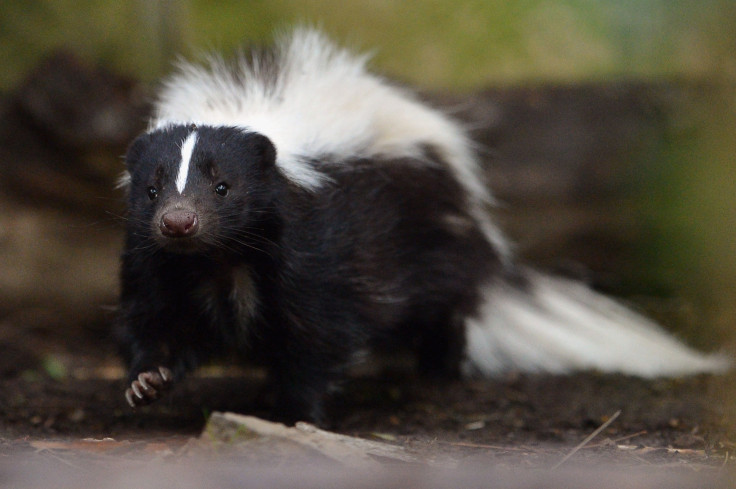Rabies Symptoms, Treatment: Skunks, Bats, Test Positive In Fort Worth, Texas

City officials in Fort Worth, Texas, confirmed Wednesday during a press conference that wild animals in the area were tested positive for rabies.
The Texas Department of State Health Services were alerted of the virus when two pet dogs in the 76244 and 76131 ZIP codes came in contact with a bat and a skunk, both of which carried rabies. Fortunately the dogs in both the cases were vaccinated beforehand, local newspaper Star-Telegram reported.
However, officials advised residents to get in contact with the Oakland County Animal Shelter and Pet Adoption Center at (248) 391-4102 if they see a wild animal acting strangely.
What is rabies?
According to the World Health Organization, “Rabies is a zoonotic disease (a disease that is transmitted from animals to humans), caused by the rabies virus, of the Lyssavirus genus, within the family Rhabdoviridae. Domestic dogs are the most common reservoir of the virus, with more than 95 percent of human deaths caused by dog-mediated rabies.”
The rabies virus can be transmitted from the saliva of a rabid animal into the human blood stream through open wounds or bites. About 95 percent of the total cases of rabies are reported in Asia and Africa, with most deaths occurring in poor rural communities, where there is a lack of awareness about the disease.
This is why is it important to remember one should seek immediate medical attention if bitten by a wild animal suspected of carrying the rabies virus. An early diagnosis will be able to let the physician decide whether the person needs treatment for the viral infection.
Symptoms
If a person gets bitten by a rabid animal, he/she may develop the following symptoms: fever, headache, nausea, vomiting, agitation, anxiety, confusion, hyperactivity, difficulty swallowing, excessive salivation, fear of water (hydrophobia), hallucinations, insomnia and partial paralysis.
Treatment
If rabies infection is established, there is no treatment to curb its effect on the body, which could be potentially fatal. However, there are a number of preventive shots that can be administered to a patient after the virus has entered the body but only before the infection has taken hold.
According to Mayo Clinic, rabies vaccinations include an instant shot (rabies immune globulin) to prevent the virus from infecting the body. A portion of the shot is administered near the spot of the wound as soon as possible after the rabid animal bites a person.
Next, a series of rabies vaccines are injected into the patient’s arm to help the body learn to identify and fight the rabies virus. One receives four injections in total over a period of 14 days.
There are some steps that one can take before reaching a medical facility:
- Thoroughly washing the wound/bite that you suspect might be infected. This helps wash away early traces of the virus.
- Capturing the wild animal which bit you helps if you are unsure whether it has rabies. Laboratory tests on the animal can remove any lingering doubts.
Prevention
As usual, prevention is always better than cure. So, here are some precautions you can take to ensure you do not get infected by the virus if a rabies warning has been issued in the area you live:
- Pet owners can get in touch with a veterinarian to get their household dogs or cats vaccinated.
- Do not let your pets roam outside without supervision. This will minimize the chances of them coming in contact with wild animals.
- If you spot any stray dogs or cats in the neighborhood, call the authorities.
- Refrain from approaching wild animals like skunks or ferrets if you spot them near your house.
- Consider getting vaccinated for rabies as a preventive measure even if you haven’t been bitten by a rabid animal.
“Our natural instinct is to befriend and pet an animal that seems friendly or help one that is injured," Leigh-Anne Stafford, health officer for Oakland County, said in a news release issued Wednesday, Detroit Free Press reported. "But as a rule, avoid stray and wild animals to protect yourself against rabies."
© Copyright IBTimes 2024. All rights reserved.












